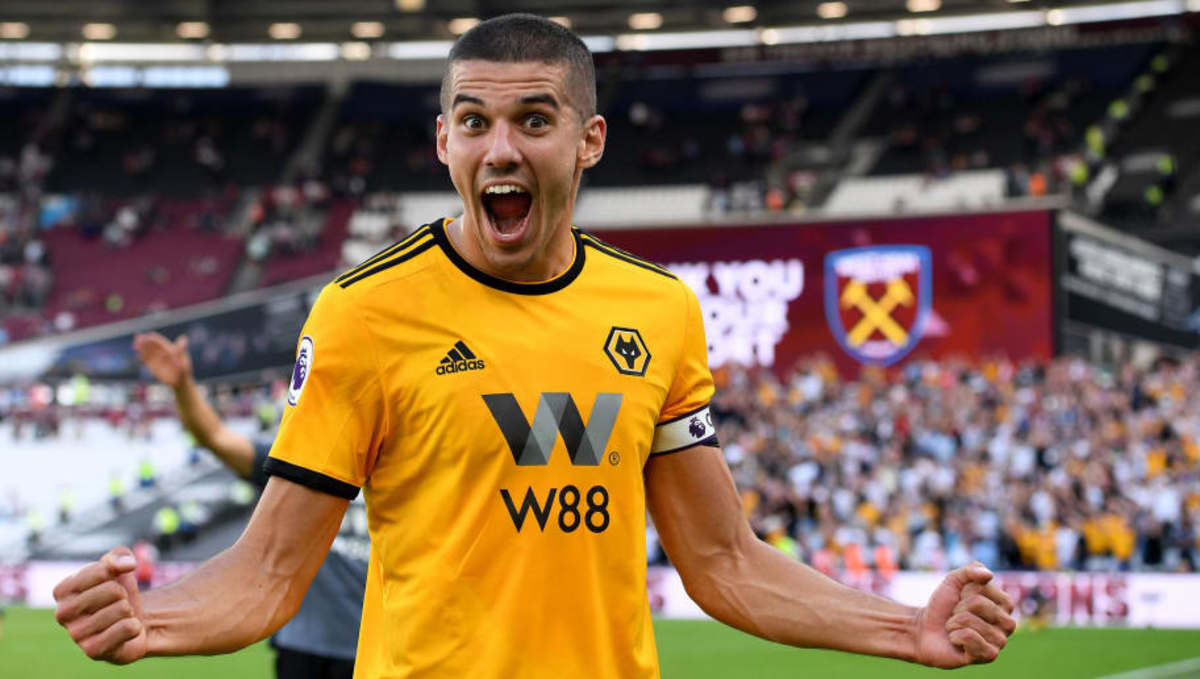How Bennett & Coady Overcame Difficult Starts to Provide Steel at the Heart of Wolves' Revolution

Since Chinese investment conglomerate Fosun International took over Wolverhampton Wanderers in July 2016, the West Midlands club have undergone a dramatic makeover.
A side which two years ago lay in the middle of the Championship table with a central midfield partnership of David Edwards and George Saville, now sit mid-table in the Premier League and boast a midfield pairing of Portuguese internationals Ruben Neves and Joao Moutinho.
It is Wolves’ Portuguese connections which have gained the most attention during their rise up the English footballing ladder. With particular scrutiny being given to the relationship between the owners and 'super-agent' Jorge Mendes.
Mendes’ close ties with the club has been evidenced through the appointment of his close friend and first ever client Nuno Espirito Santo as manager in May 2017.
This, along with acquisition of young talents such as Neves, Diogo Jota, and Ruben Vinagre; as well as more seasoned pro’s such as Moutinho and Rui Patricio highlights the growing Portuguese contingent in the Wolves squad.
However, in the midst of this Portuguese revolution, Wolves have relied on the consistency and excellence of two Englishmen, Conor Coady and Ryan Bennett, whose steely performances last season were vital to the Wanderers’ promotion.
The pair were part of a Wolves defence which conceded just 39 goals in 46 Championship games last season - the joint-best record in the division. However, their time at Wolves has not always been plain-sailing.
Conor Coady arrived at Wolves as a central midfielder when signed from Huddersfield in the summer of 2015.
In his first season with the club Coady failed to endear himself to fans with inconsistent performances in the middle of the field. Whilst his second saw him utilised to fill in a hole at right-back. Though he put in some solid performances during this campaign, few thought that he would make the cut when Nuno took charge.
However, to the surprise of many, under Nuno’s shrewd management Coady’s Wolves career was resurrected. Impressed by his leadership and vocal nature on the pitch, Nuno placed Coady at the heart of his defence, using his passing range as a way of creating counter attacks.
Coady played all but one of Wolves’ Championship matches last season, and has participated in all the team’s matches so far this season. Now club captain, Coady’s importance to Wolves is only growing.
Like his defensive partner, Ryan Bennett’s time at Wolves didn’t start particularly smoothly. Signed as a free agent from Norwich, few could see how the defender would fit into the manager’s plans. At first, it seemed that he did not, with Bennett hardly featuring in the team at the start of their triumphant Championship campaign.
However, following an unconventionally poor Wolves performance in a 2-1 defeat at QPR, Bennett was given his chance as part of defensive shake-up against his former side Norwich.
Upon Bennett’s introduction into the side, Wolves’ defensive displays improved immeasurably. A run of just two goals conceded in nine matches and seven clean sheets, saw Bennett cement his place in the Wolves starting lineup for the rest of the season.
Prior to their Premier League return Bennett’s importance to Wolves became increasingly evident during the pre-season. An experiment with central midfielder Romain Saiss playing at the right of Wolves’ back three was abandoned after a few unconvincing attempts. In a friendly against Villarreal Bennett’s introduction in the second half saw a marked improvement in their defensive solidarity.
Bennett has started all of Wolves’ matches in their return to the Premier League, and has proved his worth to the team with a string of consistently solid performances, drawing acclaim from Wolves fans.
Bennett and Coady’s places in the Wolves starting lineup, alongside players who’ve proven themselves on the international stage is a testament to their will and determination, qualities which have characterised the team’s performances this season and garnered the recognition of esteemed pundits and players.
Cries from some corners of Wolves’ support for England call-ups may be a touch premature. However, the two’s consistently solid defensive performances can surely not go unnoticed, and their history of challenging and changing critics’ preconceptions of their quality is a trait they share with many members of the England World Cup squad.
Hopefully, the pair can keep up their impressive performances for the remainder of the season and continue providing the strong English backbone which allow Wolves’ international starlets to shine.








